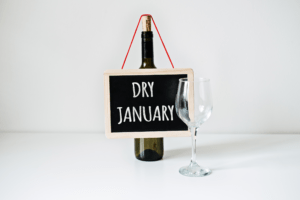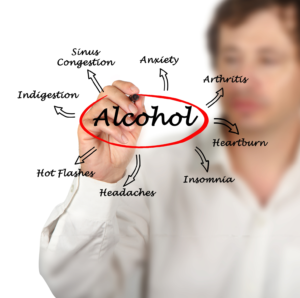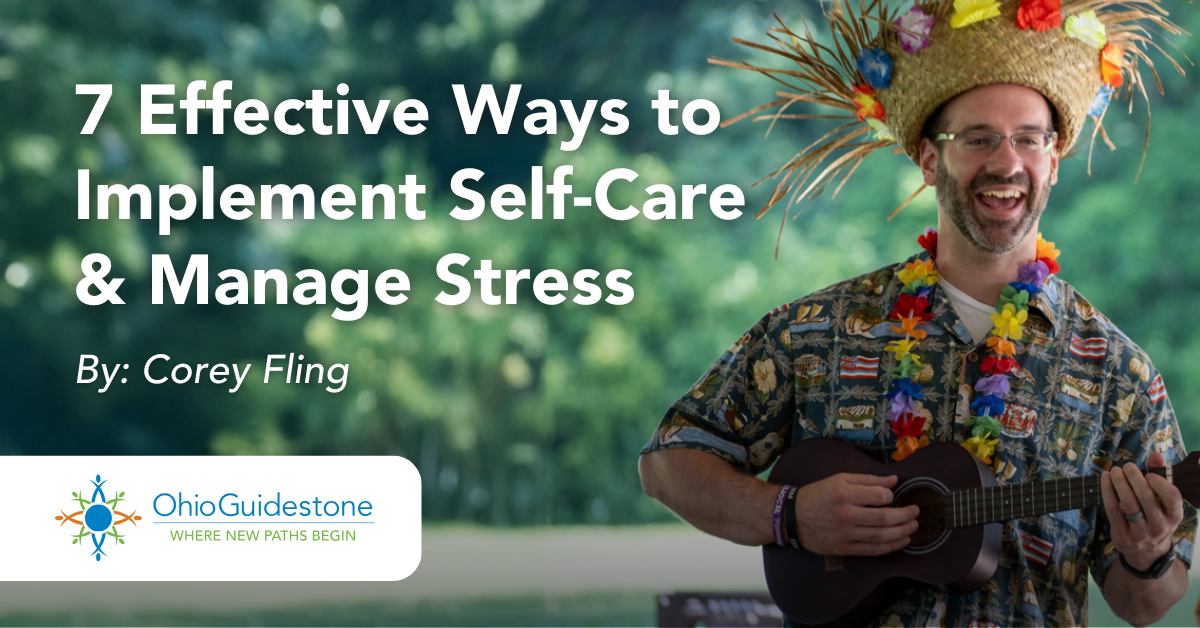Dry January Exploration: Soar with Effective Sobriety in 2024

As we step into the fresh start of a new year, many of us embark on the popular journey known as Dry January. It’s a month-long commitment to abstain from alcohol, a time of self-reflection, and an opportunity to explore the benefits of sobriety.
Dry January not only brings attention to alcohol consumption patterns, but also serves as a catalyst for individuals curious about the benefits of sobriety. For those contemplating a life without alcohol, whether due to concerns about misuse or simply about sober living, here are some suggestions and ideas to help you understand, identify, and ultimately find help on your journey.
Understanding the Link Between Dry January and Exploring Sobriety
Dry January isn’t merely a passing trend; it’s a golden opportunity to press the pause button on alcohol consumption, offering individuals a valuable chance to reevaluate their relationship with drinking. The decision to explore sobriety, whether for a month or longer, can be a pivotal step towards a happier, healthier future.
Originating in the United Kingdom in 2013, Dry January has evolved into a global phenomenon. The initiative was pioneered by Alcohol Change UK, which launched the campaign with 4,000 participants. Fast forward to 2024, marking its 11th year, and Dry January has become a powerful movement with millions of people worldwide eagerly taking part in the challenge annually.
The primary goal is to raise awareness about alcohol consumption, promote a healthier lifestyle, and allow individuals to experience the physical and mental benefits of sobriety. By voluntarily abstaining from alcohol, participants can gain insights into their habits and emotions.
It’s not about deprivation; it’s about creating a space to understand the joys, challenges, and numerous benefits of life without the influence of alcohol.
During this intentional break, individuals often find increased mental clarity, improved sleep, enhanced physical well-being, and a renewed sense of control over their choices. Beyond being a temporary challenge, Dry January can be a catalyst for long-term change, prompting participants to adopt more mindful and moderate drinking habits.
Identifying Signs of Alcohol Misuse
Recognizing the signs of alcohol misuse is the first crucial step on the road to recovery. Ask yourself: Are you drinking more than you used to? Is alcohol affecting your relationships, work, or overall well-being? During Dry January, pay close attention to your habits and emotions.
The process of recovery is a difficult journey, perhaps you are not even sure if you have a problem. Reach out to family, friends, your support system or a professional for encouragement to explore and navigate the everyday challenges associated with recovery. It’s a process, not a race to the finish line. Be patient with yourself, ask for help when needed, and most of all keep working. If you find yourself backsliding, reach out again and again until you have the strength and wisdom to reach your goals. OhioGuidestone is here for you as you explore and navigate your options.
Pamela Trimmer, LPCC-S, LICDC-CS, LSW, Vice President of Regional Operations at OhioGuidestone
If you find yourself struggling to abstain or feeling a sense of unease, it may be time to consider your relationship with alcohol more deeply. Consider whether you need more alcohol to achieve the same effects over time. Developing a higher tolerance can indicate that your body has adapted to regular alcohol consumption, potentially leading to increased intake.

Take note of how you respond if/when others express concern about your drinking. Becoming defensive, dismissive, or avoiding conversations about alcohol consumption may be a sign that it’s a sensitive topic.
Have you had failed attempts to cut down? Consider whether you’ve tried and failed to cut down on your alcohol consumption in the past. Unsuccessful attempts to control or reduce drinking may indicate a growing issue.
As you navigate Dry January, use this time of reflection to honestly assess your relationship with alcohol. If you recognize any signs of misuse and find it challenging to abstain during this period, it may be a signal to seek support and explore resources for alcohol recovery.
It’s essential to acknowledge that the journey towards sobriety, especially during Dry January, may bring about withdrawal symptoms as the body adjusts to the absence of alcohol. While mild symptoms like anxiety or nausea are common, severe manifestations such as hallucinations or seizures require immediate attention.
In the event of these severe symptoms or any unexpected medical complications, it is critical to seek emergency care promptly. Do not hesitate to contact emergency services or visit the nearest emergency room.
Prioritize your well-being and safety and ensure those around you are aware of the situation. Additionally, if you’re navigating withdrawal symptoms, consider reaching out to healthcare professionals, addiction specialists, or a local helpline for guidance and support. OhioGuidestone has crisis help lines in Cuyahoga, Henry and Tuscarawas counties.
Those experiencing a crisis can call the help lines in the following areas:
Cuyahoga County: 440.260.8595
Henry County: 1.800.468.4357
Tuscarawas County: 330.364.1374
Taking the First Step Towards Sobriety
If you’ve identified concerns about your alcohol use, seeking help is a courageous and essential next step.
If during your journey of Dry January, you find yourself struggling to keep your commitment, or if at the end of the month you are wanting to continue your journey, but you feel you need additional support, OhioGuidestone can be there for you.
Patricia Hardy, LISW-S, LCDC III, Regional Clinical Director at OhioGuidestone
Our alcohol recovery services are here to support you on your journey to sobriety.
Whether you’re in need of counselling, group therapy, or personalized treatment plans, our team is dedicated to providing compassionate and effective care. Patricia says, “Our treatment approach is one that identifies the importance of client self-determination and supporting you in the current goals you set for yourself—whether that be a reduction in use, or if you identify the need for total abstinence.” Your journey is unique, and our commitment is to assist you in achieving the goals that align with your vision of a healthier, alcohol-free life.
Considering a Sober Life
Exploring a sober life is not about deprivation; it’s about rediscovery.
Sobriety can be a scary thing to try. It can be helpful to reframe your thinking to focusing one day at a time by deciding to not drink that day or that week instead of the whole month.
Victoria Graham, LPCC-S, Regional Director of Operations at OhioGuidestone
Sobriety opens the door to improved mental clarity, better physical health, and stronger connections with others. As you navigate Dry January, consider the positive changes you experience and envision a life free from the constraints of alcohol. Contemplating a sober life is an empowering act of self-discovery and rediscovery.
Considering sobriety is a profound consideration driven by the desire for improved mental clarity, where the effects of intoxication dissipate, allowing your mind to function at its optimal capacity. It’s a consideration that signifies reclaiming control over your narrative, unlocking the door to a future where clarity, vitality, and connections flourish.
Tips for Success on Your Journey
As you navigate the path toward a healthier, alcohol-free life, consider these tips that serve as beacons of support and guidance. Together, these tips help ensure that you have the support, tools and resources needed for a successful and fulfilling transformation.

- Build a Support System: Share your goals with friends, family, or join a sober community to create a supportive network. Reach out to a close friend and share your decision to explore sobriety during Dry January. Ask if they would be willing to join you in alcohol-free activities, such as hiking, movie nights, and trying new mocktail recipes together.
- Explore Healthy Coping Mechanisms: Replace alcohol with activities that bring you joy, relaxation, and fulfillment. Instead of reaching for a drink after a stressful day, consider taking a relaxing bath, practicing mindfulness meditation, or going for a brisk walk. Create a soothing evening routine that helps you unwind without relying on alcohol. If socializing without alcohol feeling challenging, organize a game night with friends, plan a meetup in the park, or attend events that don’t center around drinking.
- Celebrate Small Wins: Acknowledge and celebrate your achievements, no matter how small, to boost your confidence and motivation. Celebrate the end of your first alcohol-free week with a special treat-a favorite dessert, a movie night, or a small purchase you’ve been eyeing. Recognize and reward yourself for achieving this milestone. Keep a journal to document your progress and note the positive changes you experience. Whether it’s improved sleep, heightened energy levels, or enhanced focus, reflect on these small wins to stay motivated and reinforce your commitment.
- Seek Professional Guidance: OhioGuidestone offers many services for Alcohol Recovery including counseling, support groups, peer recovery support, medication assisted treatment (MAT), intensive outpatient treatment (IOP) and residential treatment. OhioGuidestone also offers walk-in clinics that are designed to provide immediate assistance and guidance on your path to recovery. Walk-in clinics are located in Findlay and Toledo. Clinic dates and times vary by location. Share your goals, concerns, and questions-let our staff guide you toward personalized resources and support.
As you embrace Dry January and explore the possibility of a life without alcohol, remember that you’re not alone. At OhioGuidestone, we understand the challenges of this journey, and our dedicated team is here to offer support and assistance. Whether you have questions, need guidance, or are ready to take the first step towards a healthier, alcohol-free future, we encourage you to reach out.
You can contact us directly by calling 844.622.5564, or if you prefer, you can conveniently fill out a request services form on our website. Your journey to a better and healthier life starts with reaching out, and we’re here to help every step of the way. Take the first step this year and open the door to a healthier, alcohol-free future






